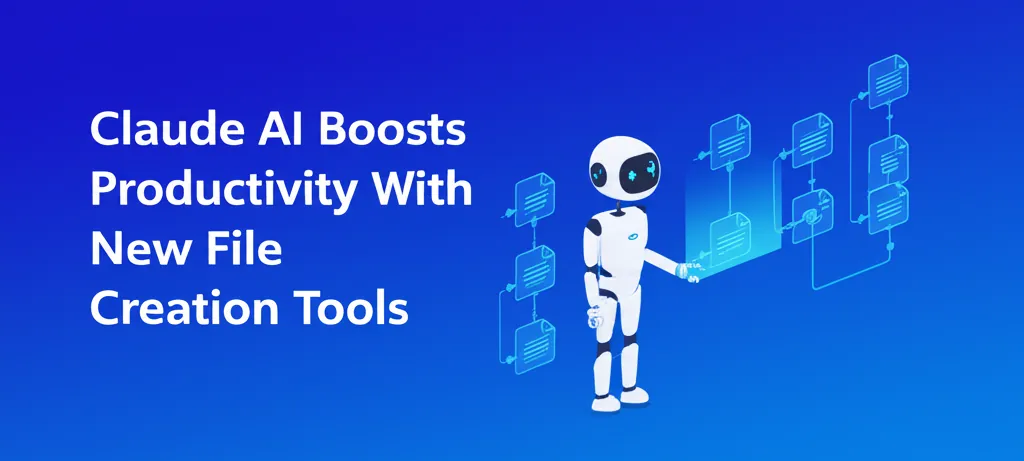Developer Offer
Try ImaginePro API with 50 Free Credits
Build and ship AI-powered visuals with Midjourney, Flux, and more — free credits refresh every month.
AI Memory Wars How Claude And ChatGPT Differ
A fascinating discussion has emerged comparing the memory architectures of two leading AI models, Anthropic's Claude and OpenAI's ChatGPT. The core difference, as one commenter suggests, isn't just a technical footnote but a reflection of fundamentally different business philosophies and long-term goals.
The Core Debate: User Profile vs. Interaction History
The conversation begins with a central thesis: ChatGPT's memory is designed to build a comprehensive profile of the user, while Claude's memory is focused on recalling the context and specifics of past interactions.
The difference in implementation comes down to business goals more than anything. There is a clear directionality for ChatGPT. At some point they will monetize by ads and affiliate links. Their memory implementation is aimed at creating a user profile.
Claude's memory implementation feels more oriented towards the long-term goal of accessing abstractions and past interactions. It's very close to how humans access memories, albeit with a search feature... there is a clear path where they leverage their current implementation so that Claude "remembers" the mistakes you pointed out last time.
At the most basic level, ChatGPT wants to remember you as a person, while Claude cares about how your previous interactions were.
This distinction sets the stage for a deep dive into the potential monetization strategies that these different memory systems enable.
Monetization Models: The Inevitable Path to Ads?
The idea that ChatGPT is gearing up for an ad-based model sparked a significant debate. Some see it as an unavoidable outcome for a service with high operational costs and a large free user base, drawing parallels to giants like Google and Facebook.
Anthropic seems to want to make you buy a subscription, not show you ads. ChatGPT seems to be more popular with those who don't want to pay, and they are therefore more likely to rely on ads.
However, not everyone is convinced that ads are the endgame or that the current memory system is built for it.
My conjecture is that their memory implementation is not aimed at building a user profile. I don't know if they would or would not serve ads in the future, but it's hard to see how the current implementation helps them in that regard.
There are 2 possible futures:
- You are served ads based on your interactions
- You pay a subscription fee equal to the amount they would have otherwise earned on ads
Let’s not fool ourselves. We will be monetized. And model quality will be degraded to maximize profits when competition in the LLM space dies down.
One user, claiming to work at OpenAI, pushes back on the idea that recent features like the model router are designed for ad injection, stating its purpose was to improve user experience.
I work at OpenAI and I'm happy to deny this hypothesis. Our goal for the router... was purely to make the experience smoother and spare people from having to manually select thinking models for tasks that benefit from extra thinking... Our goal was always a smoother experience, not ad injection or cost optimization.
Discussions about the value of an ad-supported model followed, with some pointing to analyses of Hulu's ad revenue, which an analyst estimated at around $12/month per user according to this old analysis. In contrast, Meta's ad revenue per user is estimated to be much lower, around $45 a year, highlighting the uncertainty in how much revenue LLM ads could generate.
User Experiences: Control vs. Automation in AI Memory
Beyond business models, users shared their practical experiences with both systems, revealing different preferences.
I love Claude's memory implementation, but I turned memory off in ChatGPT. I use ChatGPT for too many disparate things and it was weird when it was making associations across things that aren't actually associated in my life.
Others find the opposite to be true, preferring ChatGPT's more automated approach.
I’m the opposite. ChatGPT’s ability to automatically pull from its memory is way better than remembering to ask.
Another user pointed out a key frustration with automated memory:
I turned it off because it seemed to only remember previous hallucinations it'd made and bring them up again.
This highlights a central tension in AI memory design: the balance between helpful, automatic context and the user's need for control to avoid irrelevant or incorrect information from contaminating new conversations.
A Philosophical Divide: Are LLMs Truly Intelligent?
The discussion on memory naturally led to a more profound question about the nature of AI intelligence itself. One commenter suggested that a breakthrough in memory could be the final step toward Artificial General Intelligence (AGI).
Someone is going to figure out how to store and retrieve memories in an encoded form that skips the language representation. It may actually be the final breakthrough we need for AGI.
This prompted a strong counter-argument, reflecting a common skeptical viewpoint.
I disagree. As I understand them, LLMs right now don’t understand concepts. They actually don’t understand, period. They’re basically Markov chains on steroids. There is no intelligence in this, and in my opinion actual intelligence is a prerequisite for AGI.
The debate then unfolded, questioning the very definitions of intelligence and understanding.
I don’t understand the argument “AI is just XYZ mechanism, therefore it cannot be intelligent”. Does the mechanism really disqualify it from intelligence if behaviorally, you cannot distinguish it from “real” intelligence?
It can’t learn or think unless prompted... It has no intelligence. Intelligence implies thinking and it isn’t doing that. It’s not notifying you at 3am to say “oh hey, remember that thing we were talking about. I think I have a better solution!”
This tangent reveals that behind the technical and business discussions lies a deep-seated philosophical debate about what it means for a machine to think, learn, and remember in a way that is comparable to humans.
Compare Plans & Pricing
Find the plan that matches your workload and unlock full access to ImaginePro.
| Plan | Price | Highlights |
|---|---|---|
| Standard | $8 / month |
|
| Premium | $20 / month |
|
Need custom terms? Talk to us to tailor credits, rate limits, or deployment options.
View All Pricing Details

